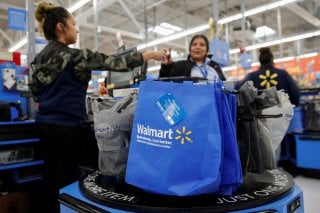$2 Trillion Coronavirus Stimulus Plan Has Food Stamp Expansion Included
How much will this help people?
As part of phase two of Congress’ response to the coronavirus epidemic, Speaker of the House Nancy Pelosi and Secretary of the Treasury Steven Mnuchin worked to create a $100 billion relief bill that expanded existing aid programs. Passed at the beginning of last week, it included free coronavirus testing, paid family leave, and expansions of Medicaid and food assistance programs.
State governments are now seeking liberalization of rules regarding food program assistance that they believe will do more to help those affected by the consequences of the virus.
Due to new quarantine rules, many businesses have been forced to curtail their hours or regular service methods, if not shut down completely. In most state jurisdictions, restaurants have been compelled to end dine-in service, but most are attempting to sustain themselves through deliver orders.
Under the current law, most recipients of food stamps are unable to use them to purchase meals from restaurants or any kind of hot or prepared food. This is meant to entice people to shop at grocery stores and prepare their own meals. State officials are now asking the Department of Agriculture to lift this rule, both to expand the options of marginalized people who are already limited during the emergency, and perhaps encourage spending at financially stressed eateries.
One of the officials seeking this change is Roy Cooper, the Democratic Governor of North Carolina. Cooper is seeking federal permission to establish a Disaster Supplemental Nutrition Assistance Program (DSNAP) in his state. This would allow him to provide assistance to people who under normal circumstances wouldn’t qualify for food stamps, but who have suffered a loss of income as a result of the coronavirus pandemic.
Another Governor who wants to expand assistance is Republican Greg Abbott of Texas. “As we continue in our efforts to combat COVID-19 [coronavirus], the state must do everything it can to make life more manageable for citizens and ensure that Texans can provide meals for their families," said Abbott in a statement earlier this week. "This waiver will go a long way in doing just that. I urge the federal government to quickly approve this waiver, giving Texans another food option during this public health emergency.”
States who have already received approval for the waiver include Georgia, South Carolina, Alabama, Michigan, Arkansas, Tennessee, and Virginia.
Just as unemployment numbers have skyrocketed in the past two weeks, the federal government is expecting an inflow of SNAP applications as well. Some skeptics are contending that the effectiveness of the waiver will be minimal. SNAP benefits per meal are very small, and most restaurants, especially with delivery fees, will remain out of the reach for recipients. The change can still open windows, however, such as allowing people to purchase rotisserie chickens and other ready-made food from grocery stores.
Hunter DeRensis is a senior reporter for the National Interest. Follow him on Twitter @HunterDeRensis.

